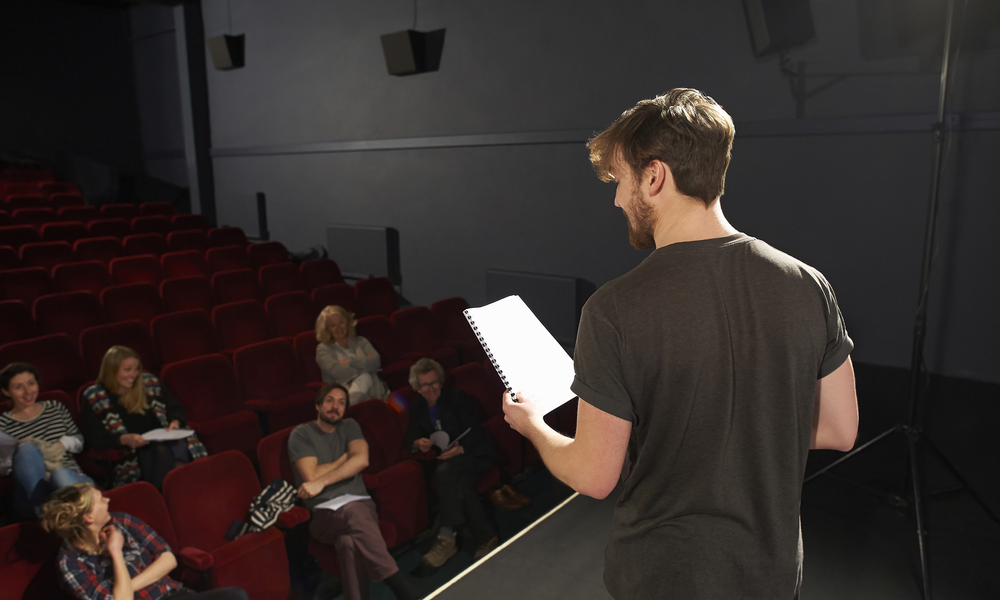News
Leading statistics experts urge reconsideration of decision to drop Statistics A-level
26 Oct 2016
The British Academy, Academy of Social Sciences, Royal Statistical Society, Nuffield Foundation and Nesta have today (26 October) urged AQA to reconsider its decision to abandon AS and A-Level Statistics.
Their statement highlights the importance of statistical skills to the UK economy in an increasingly data driven-age, citing figures from the Centre for Business and Economic Research which estimate that 58,000 jobs per year are likely to be created in the ‘big data’ marketplace between 2012 and 2017.
Professor Sir Ian Diamond FBA FAcSS, chair of the High Level Strategy Group on Quantitative Skills, said:
“Statistics and data skills will be crucial to government and business in an increasingly data-driven world. As the British Academy highlighted in its report Count Us In, unless we dramatically improve numeracy skills, the UK risks falling behind in the global race to tap the potential of ‘big data’. Instead of axing this qualification, we should ensure that as many students as possible develop the necessary numerical literacy to survive and thrive in the ‘big data’ economy.”
The organisations also argue that building statistical skills benefits society not just by enhancing research in universities or creating jobs, but also by enabling citizens to fully participate in the UK’s democratic process.
They would welcome an opportunity to discuss with AQA, other awarding organisations, and the Department of Education how to retain Statistics as an A-level subject.
Read the full statement here.
Notes to editors:
- Professor Sir Ian Diamond is available for comment; for more information, please contact the British Academy Press Office on [email protected] or 020 7969 5227.
- The High Level Strategy Group for Quantitative Skills (HLSG) brings together people and organisations committed to spreading and deepening data skills in the social sciences - how they are learned, taught and used. The aim of the HLSG is to address the deficit in QS in social sciences and humanities in the UK. The Group's activities focus on: high-level knowledge exchange; maintaining a strategic overview of data and quantitative capacity in UK institutions; advising on short and long-term priorities for data skills in higher education. It is convened by the British Academy with representation from the Royal Statistical Society, the Nuffield Foundation, the Academy of Social Sciences, the Department for Education, the Higher Education Funding Council for England, BEIS, Universities UK, the Economic and Social Research Council, the National Statistics Authority, the Advisory Committee on Mathematics Education and Nesta.
- The British Academy for the humanities and social sciences. Established by Royal Charter in 1902. Its purpose is to inspire and support high achievement in the humanities and social sciences throughout the UK and internationally, and to promote their public value. Since 2011, the British Academy has run a dedicated programme of work on Quantitative Skills and their importance for society, the economy, research and the individual. British Academy reports on this issue include Count Us In, Measuring Up and Society Counts. For more information visit www.britishacademy.ac.uk. Follow the British Academy on Twitter @britac_news.
- The Academy of Social Sciences is the national academy of academics, learned societies and practitioners in the social sciences. Its mission is to promote social science in the United Kingdom for the public benefit. The Academy is composed of around 1100 individual Fellows, 42 Learned Societies, and a number of affiliate members, together representing nearly 90,000 social scientists. Fellows are distinguished scholars and practitioners from academia and the public and private sectors. Most of the Learned Societies in the social sciences in the UK are represented within the Academy. It is also the founder of the Campaign for Social Science.
- The Royal Statistical Society (RSS) founded in 1834 is one of the world's most distinguished and renowned statistical societies. It is a learned society for statistics, a professional body for statisticians and a charity which promotes statistics, data and evidence for the public good. Today the Society has nearly 8000 members around the world. www.rss.org.uk
- The Nuffield Foundation is an endowed charitable trust that aims to improve social well-being in the widest sense. It funds research and innovation in education and social policy and also works to build capacity in education, science and social science research. The Foundation's work in post-16 mathematics has identified the need for increased opportunities for young people to learn and apply quantitative skills, and its Q-Step Programme (co-funded with the ESRC and HEFCE) – designed to promote a step-change in quantitative social science training in the UK – is one of the ways it is seeking to address this problem.
- Nesta is the UK's innovation foundation. We help people and organisations bring great ideas to life. We do this by providing investments and grants and mobilising research, networks and skills. We are an independent charity and our work is enabled by an endowment from the National Lottery. Nesta is a registered charity in England and Wales 1144091 and Scotland SC042833.
www.nesta.org.uk /@nesta_uk.
Nesta's work understanding the UK's data skills and needs includes surveying labour market needs in Skills of the Datavores: Talent and the data revolution and policy recommendations for improving analytical skills in Analytic Britain: Securing the right skills for the data-driven economy. Nesta is also a member of The Data Skills Taskforce, a cross–cutting group proposed by Nesta and Universities UK, that is working to identify good practices for education and skills provision, and spur collaboration across industry.
Latest news
Contact the press office
For further information contact the Press Office on [email protected] / 07500 010 432.


